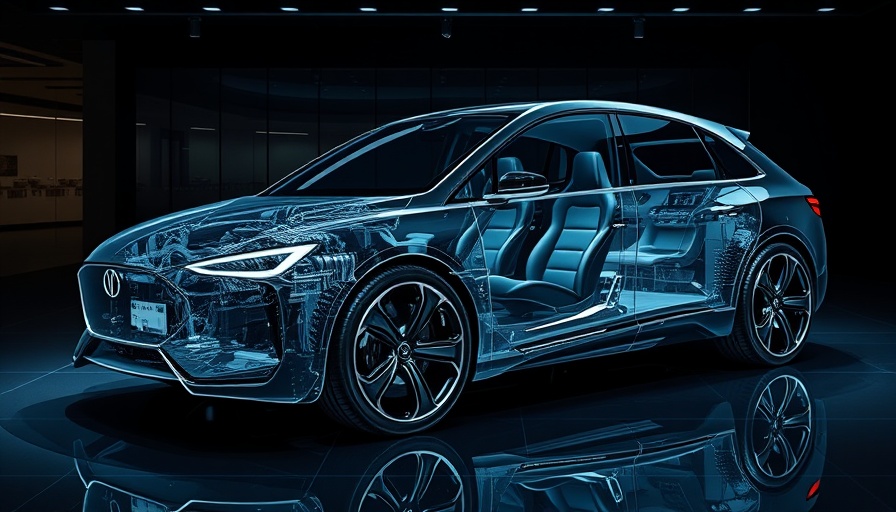
The Hybrid Era Comes to an End: Lexus LC500h's Discontinuation
Lexus recently made headlines by discontinuing the LC500h, a prominent player in the hybrid sports car market. This decision signifies more than just the phasing out of a model; it reflects a broader industry trend where hybrid systems, despite their technological sophistication, are unable to captivate consumers in the same way traditional fuel-powered engines do. In the first half of 2025, the LC500h managed to sell a mere seven units, markedly trailing behind the V8-powered LC500, which saw sales of 783 units in the same timeframe. The numbers shed light on a striking reality: even the most technologically advanced hybrids can falter in an emotionally driven market.
Fuel-Powered Emotion vs. Hybrid Integrity
At its core, the automotive industry is not just about numbers—it's about the emotional connection drivers forge with their vehicles. The LC500h, although praised for its hybrid technology and performance statistics, simply couldn't evoke the same longing as its V8 counterpart. This distinction poses an essential question: what drives consumer choices in the automotive market? For many drivers, the roar of a petrol engine represents freedom, thrill, and passion—qualities that hybrids, often focused on efficiency, may lack.
A Glimpse into the Future: What Lies Ahead for the Lexus Lineup?
As we navigate into 2026, the discontinuation of the LC500h leaves Lexus with a notable gap in its lineup, retaining only the pure combustion 5.0L V8 engine in the LC series. This shift aligns with a wider industry prediction: while hybrids and electrics dominate conversations, the visceral appeal of a performance engine continues to strike a chord with automotive enthusiasts. The future Lexus models may need to adapt, possibly pivoting back to those powerful engines while addressing the thirst for sustainable tech through innovative approaches.
Consumer Choices: Comfort in Tradition vs. Progress of Innovation
The choice between hybrid technology and traditional fuel engines highlights a critical tension within car ownership today. What exactly do buyers value? A comprehensive understanding of this dichotomy involves examining the benefits of both options. On one hand, hybrids like the LC500h provide improved fuel efficiency and reduced emissions. On the other, performance cars embrace a rich driving experience that many enthusiasts prioritize, notwithstanding economic or environmental considerations.
Driving the New Car Trends: Insights into Future Automotive Preferences
As the automotive industry evolves, several trends are emerging among cars for 2024 and beyond, including electrification, technological enhancements, and high-performance variants. Understanding these trends can provide valuable insights for both manufacturers and consumers alike. Each of these factors affects new car reliability ratings and consumer decision-making processes as they face choices resembling the sedan vs. SUV debate. As vehicles integrate more intricate technology features, the market's appetite for reliable and robust options continues to grow.
Taking Action: What Should Consumers Consider?
For consumers currently in the market for a vehicle, this evolution in the automotive landscape should prompt careful examination. Evaluating car ownership costs, performance analysis, and emerging car technology features can offer guidance in deciding which vehicle best suits their lifestyle. Should drivers prioritize the emotional experience of driving a fuel-powered vehicle or the practical aspects of a hybrid? The decision may ultimately rest on personal priorities.
Final Thoughts: The Art of Driving in a Transitioning World
The discontinuation of the Lexus LC500h brings to light the complexities of consumer preferences in the auto industry. While technological advancements have opened new horizons for hybrid vehicles, the fuel-powered classics still hold firm in the hearts of many. As individuals weigh their options between traditional combustion engines and innovative hybrid technologies, staying informed about trends related to reliability, performance, and overall driving experiences will be crucial for making sound decisions in the fast-evolving automotive market.
 Add Row
Add Row  Add
Add 




Write A Comment